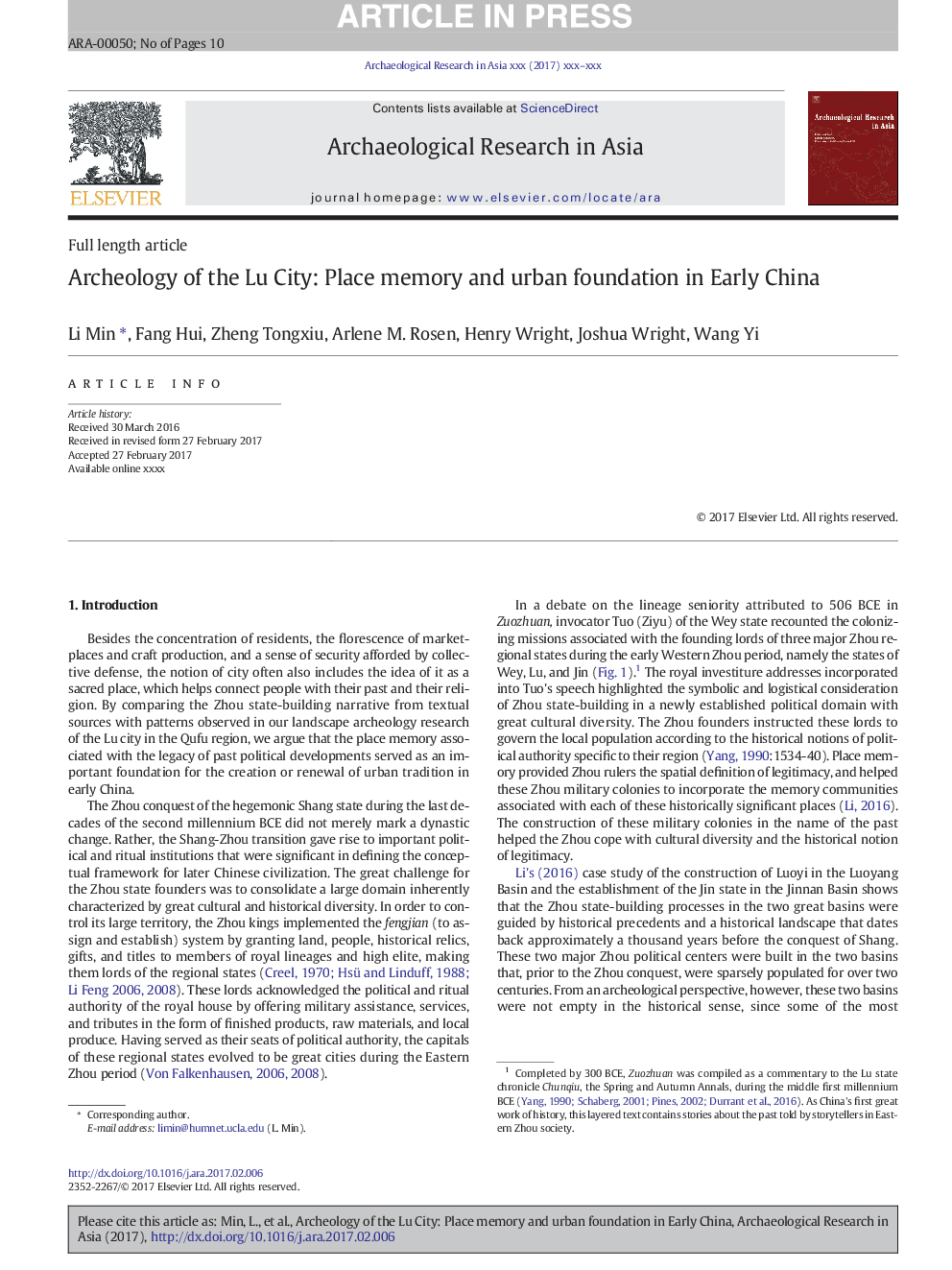ترجمه فارسی عنوان مقاله
باستان شناسی شهر لو: حافظه محل و بنیاد شهری در اوایل چین
عنوان انگلیسی
Archeology of the Lu City: Place memory and urban foundation in Early China
| کد مقاله | سال انتشار | تعداد صفحات مقاله انگلیسی |
|---|---|---|
| 155505 | 2017 | 10 صفحه PDF |
منبع

Publisher : Elsevier - Science Direct (الزویر - ساینس دایرکت)
Journal : Archaeological Research in Asia, Available online 21 March 2017
ترجمه چکیده
با مقایسه روایت ساخت دولت ژو از منابع متنی با الگوهایی که در تحقیقات باستان شناسی ما در منطقه قوو مشاهده شده است، پروژه تحقیقاتی مشترک ما نقش نقش حافظه را در ایجاد یا تجدید ساختن سنت شهری در جامعه ژوئن هزاره اول قبلا مطالعه ما در زمینه چشم انداز باستان شناسی منطقه ای به عنوان یک پیمپلت، شواهدی را برای سیستم منظم در ارتباط با ایجاد یک کلنی ژو در دوران هزاره اول قبل از میلاد و تبدیل آن به یک مرکز نظامی به یک مرکز شهر ژول در منطقه خلیجفورد در اواخر هزاره اول قبل از میلاد ما نتیجه می گیریم که سخنان سیاسی ژو در حل و فصل اختلافات رژیم های گذشته به معماران دولت ژو اجازه داده شد تا به حافظه اجتماعی جای گذاری شده توسط جوامع حافظه گوناگون در قلمرو وسیع آن دسترسی پیدا کنند. یک حافظه مشترک مشترک در مورد یک قسمت مهم از گذشته باعث ایجاد یک حوادث پایدار به چشم انداز شهری چینی شده است و لذا مستقیما به عنوان یک مولفه مرکزی تاریخ شهری در اوایل چین مطالعه می شود.

